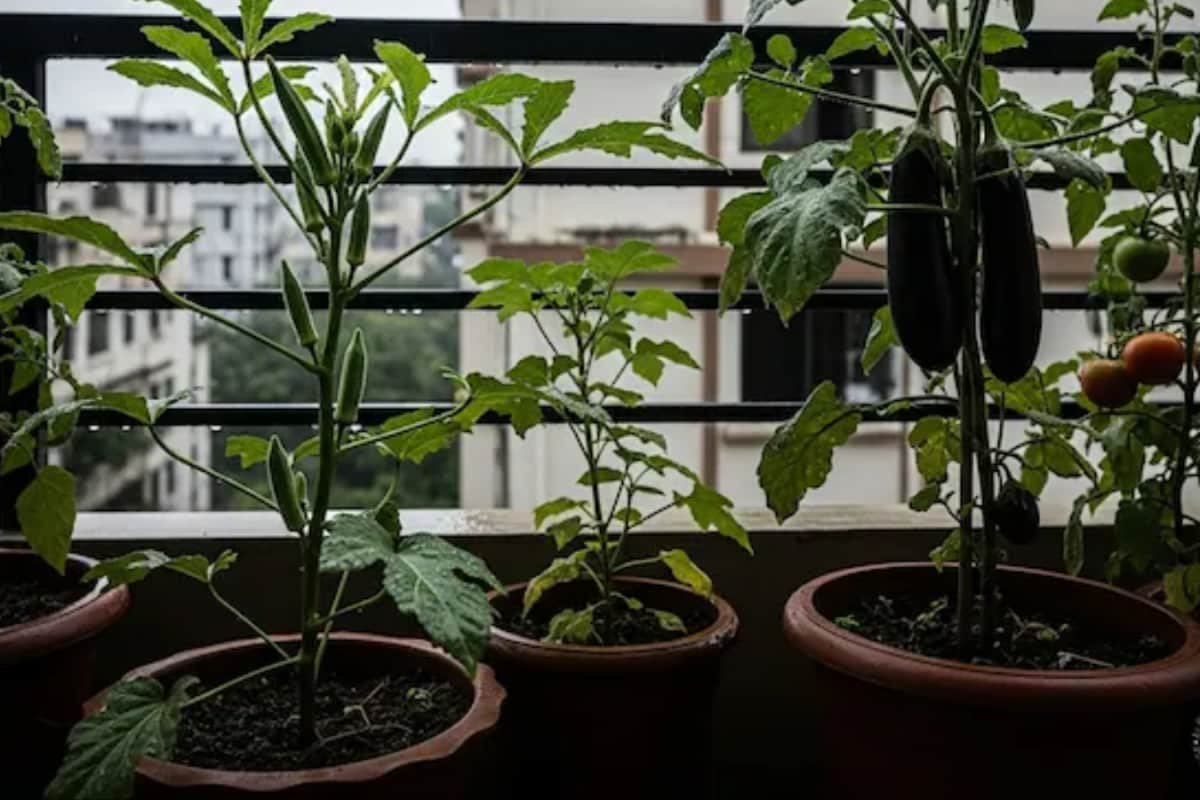Lifestyle
Grow These 6 Easy Vegetables at Home This Monsoon Season

As the monsoon season begins across many regions of India, home gardening enthusiasts are encouraged to take advantage of the ideal conditions for growing vegetables. The combination of cooler temperatures, moist soil, and consistent humidity creates a perfect environment for cultivating a variety of vegetables at home. This rainy season, individuals can skip the market and grow their own fresh produce with minimal effort.
Top Six Vegetables to Grow at Home
Here are six easy and nutritious vegetables that require little care and can thrive in the rainy season.
Bottle Gourd (Lauki) is an excellent choice for novice gardeners. It grows well in pots, sacks, or directly in the ground, needing minimal sunlight and support structures like scaffolding. Bottle gourd is not only easy to cultivate but also beneficial for gut health and digestion.
Ridge Gourd (Turai) is another vine that flourishes during monsoon. Similar to bottle gourd, it can be grown in containers with adequate support and occupies minimal space. With its mild flavor, ridge gourd aids in detoxification and enhances the freshness of various dishes.
Okra (Bhindi) is a beloved vegetable that can be easily planted at home. By sowing seeds directly into moist soil exposed to good sunlight, gardeners can witness germination within 10 to 12 days. Rich in iron and fiber, okra is both nutritious and tasty.
Brinjal (Baingan) thrives well in monsoon conditions but requires slightly deeper soil. Using a large pot or a garden bed ensures it receives ample sunlight. Brinjal is a rich source of potassium, fiber, and antioxidants, making it a staple in many kitchens.
Fenugreek (Methi) is a popular choice among home gardeners due to its ease of growth, even in small spaces. This herb requires little care and offers significant health benefits, including aiding digestion and managing diabetes, thanks to its high iron and vitamin content.
Spinach (Palak) is often referred to as a superfood because of its rapid growth in monsoon weather. It can thrive in partially shaded areas, making it an excellent option for those with limited sunlight. Spinach is packed with iron, calcium, and vitamins A and C, essential for a balanced diet.
Additional Planting Considerations
In addition to these six vegetables, home gardeners may also consider growing chillies, tomatoes, and bitter gourd to enhance their kitchen gardens.
To ensure successful growth during the rainy season, gardeners should consider a few important tips. Maintaining proper drainage is crucial to avoid root rot caused by excessive rainwater. Mixing cow dung manure or compost into the soil before planting can significantly enhance growth and yield. Watering should be done in the morning or evening to minimize evaporation, while regular spraying of neem oil or turmeric water can protect plants from pests.
The monsoon season presents an excellent opportunity for individuals and families to cultivate their own vegetables, ensuring a fresh, chemical-free supply. By embracing home gardening, people can promote a sustainable lifestyle while enjoying the rewards of a mini kitchen garden. This rainy season, consider starting your own vegetable garden for a healthy and rewarding experience.
-

 World7 months ago
World7 months agoSBI Announces QIP Floor Price at ₹811.05 Per Share
-

 Lifestyle7 months ago
Lifestyle7 months agoCept Unveils ₹3.1 Crore Urban Mobility Plan for Sustainable Growth
-

 Science6 months ago
Science6 months agoNew Blood Group Discovered in South Indian Woman at Rotary Centre
-

 World7 months ago
World7 months agoTorrential Rains Cause Flash Flooding in New York and New Jersey
-

 Top Stories7 months ago
Top Stories7 months agoKonkani Cultural Organisation to Host Pearl Jubilee in Abu Dhabi
-

 Science7 months ago
Science7 months agoNothing Headphone 1 Review: A Bold Contender in Audio Design
-

 Sports6 months ago
Sports6 months agoBroad Advocates for Bowling Change Ahead of Final Test Against India
-

 Top Stories7 months ago
Top Stories7 months agoAir India Crash Investigation Highlights Boeing Fuel Switch Concerns
-

 Business7 months ago
Business7 months agoIndian Stock Market Rebounds: Sensex and Nifty Rise After Four-Day Decline
-

 Sports6 months ago
Sports6 months agoCristian Totti Retires at 19: Pressure of Fame Takes Toll
-

 Politics7 months ago
Politics7 months agoAbandoned Doberman Finds New Home After Journey to Prague
-

 Top Stories7 months ago
Top Stories7 months agoPatna Bank Manager Abhishek Varun Found Dead in Well









